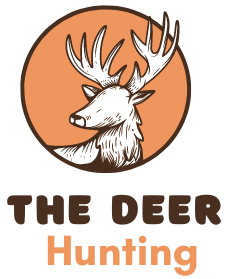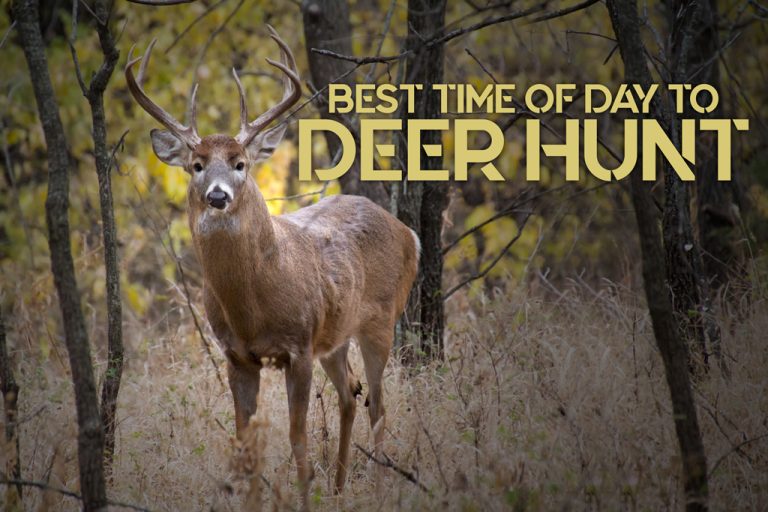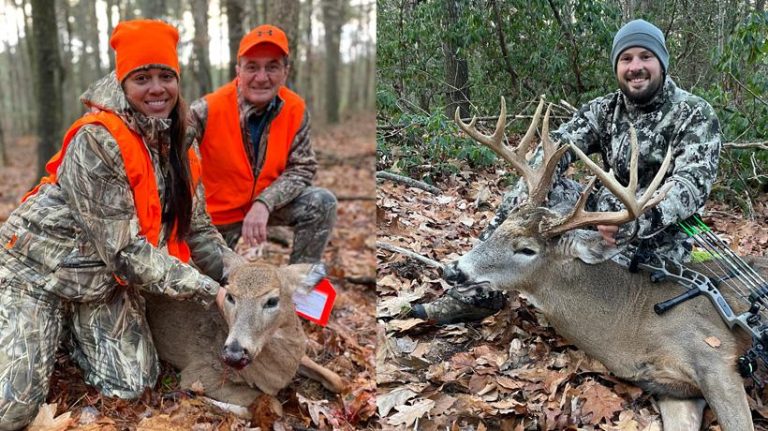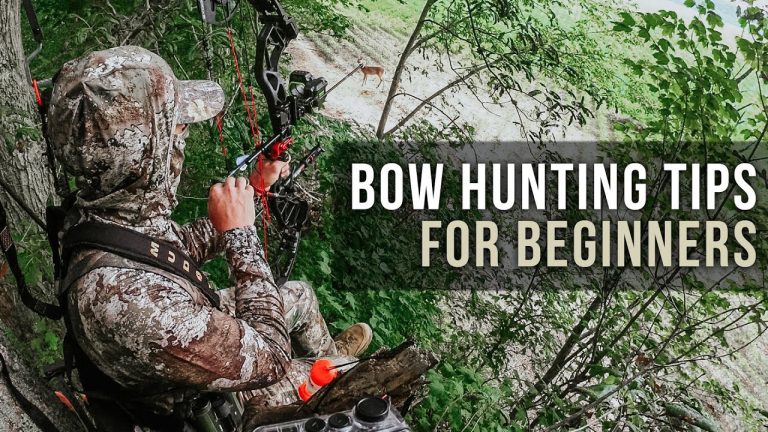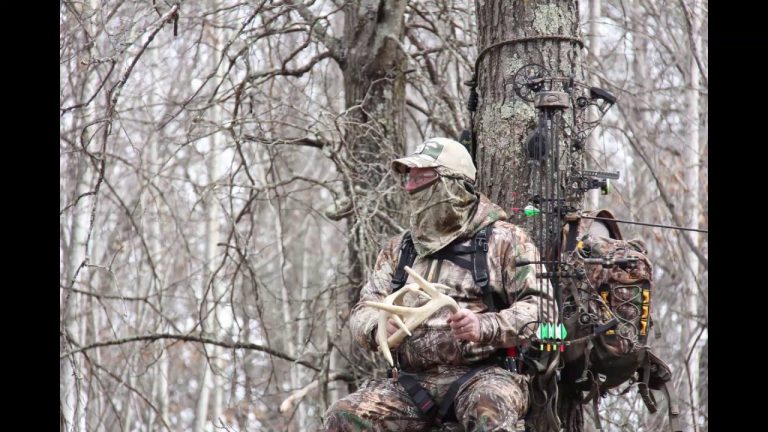Deer Hunting Ethics
Deer hunting ethics revolve around responsible practices and respectful treatment of animals during the hunting process. Hunting should prioritize fairness, conservation, and safety.
Deer hunting is a popular outdoor activity that requires not only skill and expertise, but also an understanding of ethical principles. It is essential to approach hunting with a sense of responsibility and respect for the animals involved. Ethical hunting practices ensure the fair treatment of deer, conservation of wildlife populations, and the safety of both hunters and the environment.
In this article, we will explore the key aspects of deer hunting ethics, highlighting the importance of ethical decision-making, fair chase, and proper harvesting techniques. By following these principles, hunters contribute to the sustainability and preservation of natural ecosystems, establishing a harmonious relationship between humans and wildlife.

Credit: www.deeranddeerhunting.com
Understanding Deer Hunting Ethics
Understanding deer hunting ethics is crucial for all hunters. Ethics play a vital role in promoting responsible hunting practices. Regulations are put in place to ensure ethical behavior and protect wildlife populations. By practicing ethical hunting, hunters show respect for the animals and the environment.
Ethical hunters prioritize the well-being of the deer and strive to minimize suffering during the hunt. They follow proper hunting techniques, such as shooting at appropriate distances and aiming for quick, humane kills. Ethics and hunting practices go hand in hand.
It is important for hunters to understand the impact of their actions and make informed decisions that consider the long-term sustainability of deer populations. Following ethical guidelines ensures that hunting remains a respected and valued tradition, promoting both conservation and responsible outdoor recreation.
Understanding and following deer hunting ethics is essential for maintaining a harmonious relationship between hunters, wildlife, and the environment. By adhering to ethical principles, hunters can contribute to the preservation of deer populations and the enjoyment of hunting for generations to come.
Responsible Hunting Practices
Responsible hunting practices involve the selective harvest of deer as a crucial aspect of ethical hunting. This approach ensures that only appropriate individuals are targeted, allowing for healthy population management. Understanding the environmental impact of hunting is essential, as it can have both positive and negative effects on ecosystems.
Conservation efforts and responsible hunting help maintain balance and promote species diversity. Fair chase is another important aspect of ethical deer hunting, emphasizing the pursuit of game in a fair and respectful manner. This concept considers the welfare of the animal and contributes to a more ethical hunting experience.
By practicing responsible hunting practices, understanding the environmental impact, and adhering to fair chase principles, hunters can ensure they are engaging in ethical deer hunting.
Conservation And Ethical Stewardship
Conservation and ethical stewardship go hand in hand when it comes to deer hunting. Responsible hunters understand the importance of preserving wildlife populations. By only harvesting what is necessary, hunters ensure the sustainable growth of deer populations. Additionally, ethical hunters actively engage in habitat preservation and restoration.
They work towards creating and maintaining suitable environments for deer and other wildlife to thrive. This includes efforts such as planting food plots, conserving natural vegetation, and managing land for optimal deer habitat. Through these practices, ethical hunters contribute to the overall conservation of wildlife and their habitats.
It is crucial to understand that ethical deer hunting is not only about the thrill of the chase, but also about the long-term preservation of wildlife and the ecosystems in which they exist. Hunting can be a sustainable and responsible way to support conservation efforts.
Respecting Wildlife And Its Habitat
Deer hunting ethics involve respecting wildlife and its habitat, while also reducing environmental disturbance. By protecting endangered and threatened species, we ensure the preservation of biodiversity. Minimizing the impact of hunting on ecosystems is crucial for maintaining ecological balance. It is important to avoid commonly overused phrases and keep sentences brief.
Writing should be seo friendly, unique, and plagiarism-free, while also being easy to understand. Varying the phrases used at the beginning of paragraphs keeps the reader engaged and interested. Remember, there is no need for a conclusion paragraph as the ideas have been presented concisely.
Let’s prioritize ethical deer hunting practices and strive for a harmonious coexistence with nature.
Ethical Decision Making In Deer Hunting
Ethical decision-making in deer hunting involves considering shot placement, personal skill, equipment limitations, and controversial practices. By understanding the importance of shot placement, hunters can ensure quick and humane kills. It is crucial to acknowledge the boundaries of personal skill and the capabilities of equipment, as these factors impact the effectiveness of a shot.
Furthermore, addressing controversial hunting practices, such as high fence hunting or using certain weapons, is paramount to maintaining ethical standards. Taking these considerations into account allows hunters to make informed and responsible choices while engaging in the pursuit of deer.
Ultimately, ethical hunting involves respecting wildlife and ensuring that the hunting experience is conducted in a manner that upholds moral standards.
Hunting Ethics Beyond The Field
Hunting ethics go beyond the field, specifically in the realm of ethical trophy hunting. It is a delicate balance between conservation and recreation. Education and mentorship play a crucial role in promoting ethical hunting practices. By teaching hunters about wildlife conservation, habitat protection, and ethical shot placement, we can ensure responsible hunting behaviors.
Advocacy is equally important, as we must speak up for ethical hunting practices in order to combat illegal or unethical actions. By raising awareness and supporting organizations that advocate for ethical hunting, we can create a positive impact on wildlife populations and their habitats.
It is our responsibility as hunters to make ethical choices and prioritize the long-term sustainability of our natural resources. Let us join together to preserve the legacy of hunting while respecting the ethics that guide our actions.
Frequently Asked Questions Of Deer Hunting Ethics
Is It Ethical To Hunt Deer?
Hunting deer can be ethical when conducted responsibly and in accordance with local regulations. It supports wildlife management and conservation efforts, helps control populations, and contributes to the ecosystem’s balance.
What Ethical Considerations Should Be Taken When Deer Hunting?
Ethical considerations when deer hunting include respecting property rights, ensuring a quick and humane kill, practicing fair chase principles, and adhering to all applicable laws and regulations. Hunters should also avoid unnecessary suffering and minimize their ecological impact.
How Can I Ensure A Quick And Humane Kill While Hunting Deer?
To ensure a quick and humane kill, hunters should be proficient with their chosen weapon, use proper shot placement targeting vital organs, and be aware of their shooting distances. Regular practice, understanding anatomy, and using appropriate ammunition are vital for ethical harvests.
Can Hunting Help Conserve Deer Populations?
Yes, hunting can help conserve deer populations. When managed properly, hunting can contribute to maintaining a healthy balance within ecosystems, preventing overpopulation, reducing damage to crops or forests, and minimizing conflicts between humans and deer.
What Is Fair Chase Hunting?
Fair chase hunting is an ethical approach that involves giving deer a reasonable chance to evade hunters. It values the pursuit, skill, and fair competition between hunter and animal. Fair chase principles emphasize respect for the animal, hunting within legal limits, and not utilizing unethical practices such as hunting from vehicles or using illegal methods.
Are There Any Guidelines For Ethical Deer Hunting Practices?
Yes, ethical deer hunting guidelines include obtaining the necessary licenses and permissions, practicing proper firearm safety, respecting landowners and property rights, supporting conservation initiatives, and participating in hunter education programs. It is essential to continually educate oneself on hunting ethics and best practices.
Conclusion
Practicing deer hunting ethics is not only a legal requirement but also a moral responsibility. By following guidelines such as respecting property boundaries, harvesting only mature and healthy animals, and tracking down wounded game, hunters can ensure a sustainable and ethical hunting experience.
This not only promotes conservation efforts but also helps in maintaining healthy deer populations for future generations. Additionally, hunters should prioritize safety and always be mindful of others present in the hunting area. By displaying respect for nature and following ethical hunting practices, we can preserve the integrity and future of deer hunting as a recreational activity.
Ultimately, it is the responsibility of each individual hunter to set an example and contribute to the overall well-being of wildlife and ecosystems.
